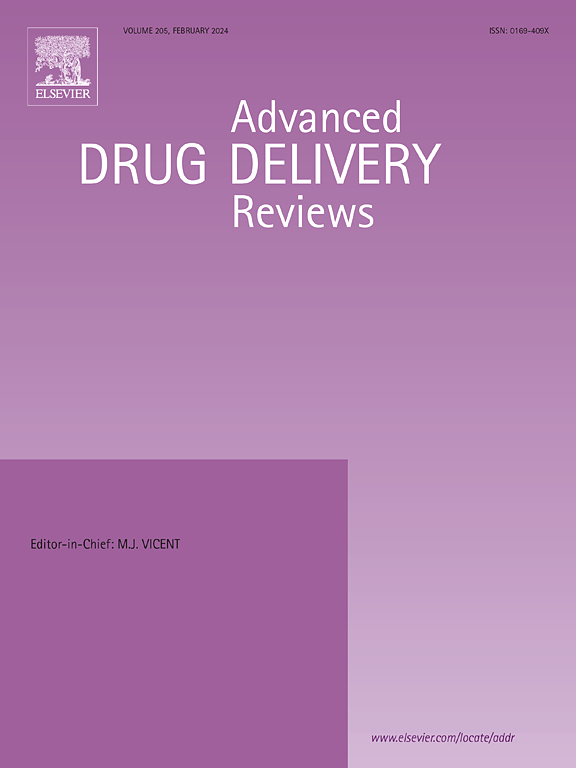用于口服多肽和蛋白质的先进微生物组疗法:进展、挑战和机遇
IF 17.6
1区 医学
Q1 PHARMACOLOGY & PHARMACY
引用次数: 0
摘要
多肽和蛋白质药物已经改变了许多疾病的治疗前景,但由于酶降解、不稳定性和胃肠道渗透性差,口服给药仍然是一个重大挑战。先进微生物组疗法(AMTs)可以通过直接在胃肠道中产生和释放治疗肽来克服这些障碍。amt可以在吸收部位局部产生肽,提供持续或控制释放,同时潜在地减少与全身给药相关的副作用。在此,本文综述了AMTs在口服肽递送中的地位,并讨论了酶抑制剂、渗透增强剂和黏合剂的潜在整合,以进一步提高口服生物利用度。结合这些方法可以为肽和蛋白质药物更广泛的口服给药策略铺平道路。本文章由计算机程序翻译,如有差异,请以英文原文为准。


Advanced microbiome therapeutics for oral delivery of peptides and proteins: Advances, challenges, and opportunities
Peptide and protein medicines have changed the therapeutic landscape for many diseases, yet oral delivery remains a significant challenge due to enzymatic degradation, instability, and poor permeability in the gastrointestinal tract. Advanced Microbiome Therapeutics (AMTs) could overcome some of these barriers by producing and releasing therapeutic peptides directly in the gastrointestinal tract. AMTs can localize peptide production at the site of absorption, providing either sustained or controlled release while potentially reducing side effects associated with systemic administration. Here, this review assesses the status of AMTs for oral peptide delivery and discusses the potential integration of permeation enhancers, mucoadhesive systems, and receptor-mediated transport strategies to improve oral bioavailability further. Combining these approaches could pave the way for more widespread oral delivery strategies for peptide and protein medicines.
求助全文
通过发布文献求助,成功后即可免费获取论文全文。
去求助
来源期刊
CiteScore
28.10
自引率
5.00%
发文量
294
审稿时长
15.1 weeks
期刊介绍:
The aim of the Journal is to provide a forum for the critical analysis of advanced drug and gene delivery systems and their applications in human and veterinary medicine. The Journal has a broad scope, covering the key issues for effective drug and gene delivery, from administration to site-specific delivery.
In general, the Journal publishes review articles in a Theme Issue format. Each Theme Issue provides a comprehensive and critical examination of current and emerging research on the design and development of advanced drug and gene delivery systems and their application to experimental and clinical therapeutics. The goal is to illustrate the pivotal role of a multidisciplinary approach to modern drug delivery, encompassing the application of sound biological and physicochemical principles to the engineering of drug delivery systems to meet the therapeutic need at hand. Importantly the Editorial Team of ADDR asks that the authors effectively window the extensive volume of literature, pick the important contributions and explain their importance, produce a forward looking identification of the challenges facing the field and produce a Conclusions section with expert recommendations to address the issues.

 求助内容:
求助内容: 应助结果提醒方式:
应助结果提醒方式:


